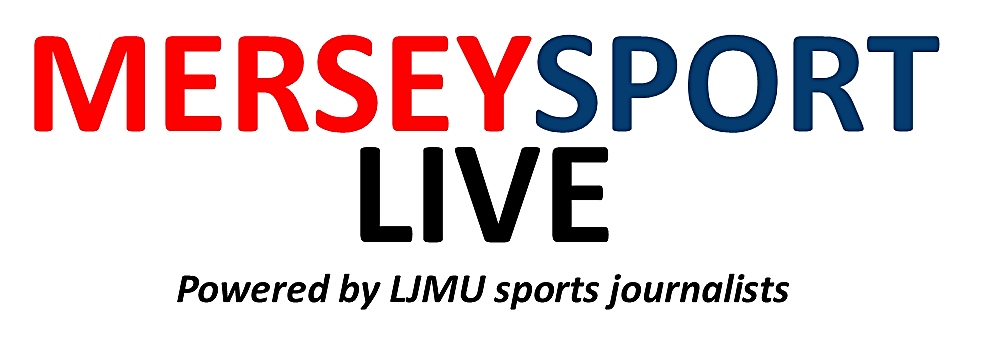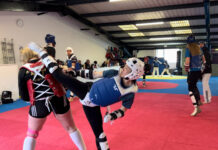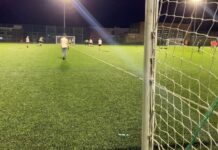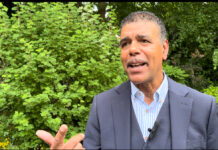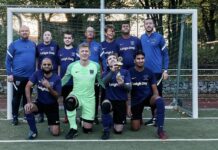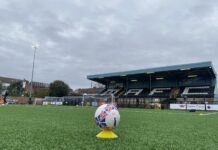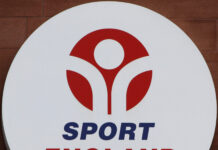The National Lottery’s 25th birthday is upon us and should be celebrated as a moment to appreciate the extraordinary impact The National Lottery has had on the UK.
Since it began, over 565,000 individual grants have been awarded across the UK, with more than £5.7 billion of National Lottery funding being invested into grassroots sports, helping many top British athletes develop and achieve the success they have gained throughout their career.
To understand just how much of an impact the National Lottery has had on sports in the UK, at the 1996 Atlanta Summer Olympics, before National Lottery funding began for elite sport, Great Britain ranked 36th in the Olympic medal table, with just one gold medal.
At Rio 2016, after almost two decades of funding from The National Lottery, both the Olympic and Paralympic teams finished second in the medal table.
The impact of National Lottery funding has been truly significant changing the face of sport in the country, urging world-class performances across a wide variety of sports.
Yet, how has The National Lottery impacted the City of Liverpool and are there any pitfalls to what seems to be a perfect operation?
Over the past 25 years, The National Lottery has invested £647 million into sport across the North West, with 138 grants provided to the Liverpool region in the past 10 years. This has helped grow and develop several community sports centres provided for the people of Liverpool.
So what are some of the main projects that The National Lottery have funded in Liverpool?
One big development was ‘The Florrie’, which was the first boys club in the country. From 1889, The Florrie played an important part in community life before falling into decline and shutting for 22 years.
The local community rallied around and with the help of £4.2 million from the Lottery Fund, it reopened earlier this year boasting a gym, auditorium, café, crèche, social enterprises, library and heritage centre.
Liverpool Harrier Katarina Johnson Thompson is one of 1,200 athletes to receive National Lottery funding and the Liverpool born athlete showed her admiration for the reopening of the youth centre, saying: “Lottery funding has got the Florrie back on its feet and created great facilities that everyone can enjoy.”
Katarina Johnson Thompson continued to describe how important the funding has been in her career and how it “supported her” in her road to Rio 2016.
After the success of Vitality Netball World Cup in Liverpool last July, selling over 100,000 tickets, a Woman’s Liverpool Netball project ‘Together We Will’ was set up, aiming to encourage women in Liverpool to become more active and get involved in physical activity.
The project received a 75k funding award, in addition to the £19.7m provided from Sport England to England Netball in 2017.
Regular netball sessions take place in local children’s centres, parks and community facilities in Liverpool, with a focus not only on developing skills within the sport, but also developing the individual’s life skills.
This huge development with help from the National Lottery will have a great sporting impact for the people of Liverpool and has massively helped sports and in particular, Netball develop in the city.
The Anfield Sports and Community Centre benefitted from £300,000 of National Lottery funding from Sport England’s Improvement Fund for the ‘4 Football 4 Everyone’ project.
The scheme helped fund the centre’s redevelopment in 2015 and saw major improvements to facilities including a new full size floodlit artificial grass pitch, a three-court sports hall and the refurbishment of existing artificial grass turf pitches. This yet again highlights the positive impact The National Lottery has left the community through sport.
So, while the National Lottery has funded many great, beneficial sporting projects for the city of Liverpool, there are many that believe the current funding system is still slightly flawed and needs to be assessed further.
Despite Paralympic sport funding increase in the last several years, many believe that the funding levels provided isn’t enough to compete in Tokyo 2020, and it is too big of a disparity between funding for the Olympics and Paralympics.
Grey-Thompson, a Paralympic athlete who won 11 gold medals during her career recently warned the funding levels for Tokyo may not be enough to secure a repeat of second place in the medals table in Rio, as other nations continue to evolve their own Paralympic programmes.
She said “As other countries decide they want to compete on the world stage and put in more funding, it is going to be harder for us to maintain that level of success.
“I don’t think we are going to fall back to the place where the Olympic team were in Atlanta, but it is about refocusing and being realistic about what we can achieve as a nation.”
Also, due to the current funding system, National Lottery money is currently allocated on the basis of medal potential, meaning every sport doesn’t have the same share and it isn’t distributed fairly.
The 11 sports – archery, badminton, baseball/softball, basketball, fencing, handball, volleyball, weightlifting, wrestling, wheelchair rugby and table tennis – were all left without funding when UK Sport announced its £345m plan, meaning the local community clubs dedicated to these sports in Liverpool will struggle to compete without the necessary funds provided.
Instead of UK Sport’s “no compromise” approach to picking winners, the unfunded sports want a “tiered support structure” that would guarantee every Olympic and Paralympic sport a base level of funding.
However, the funding for disability sport in Merseyside has certainly improved of late. One example coming from Greenbank Sports Academy, who recently received £318,000 of funding.
This was one of 44 projects across England that benefited from £8.06 million of National Lottery investment from Sport England to open up more opportunities for disabled people to play sport.
The project saw six new disability sports hubs at several schools in Liverpool, with the Sports on offer including Table Tennis, Football, Hockey, Basketball, Boccia, Rugby League and Handball.
Further enhancing the positive change of funding from The National Lottery towards disability sports, last year saw a £32,000 legacy masterplan to improve the lives of local people with disabilities in the city.
The funding will be invested into establishing a brand new Boccia club in the centre of Liverpool. Boccia England will be working with local partners to deliver ‘come and try’ sessions, helping the people of Liverpool to develop and learn a new skill.
Gold medallist, David Smith, hopes the sport can bring as much joy to people with disabilities as it does himself. He said: “Even though Boccia is a Paralympic sport, many people don’t even know it exists.
“So, we’ll be using the World Championships as a shop window for the sport to get the word out there and raise awareness because Boccia is a huge lifeline for people with disabilities like mine and it improves coordination, strength and it is a great way to meet people and be sociable”.
While some would say the National Lottery’s funding process is unfair and needs to be assessed, the success the funding has bought our country with an array of exceptional athletes from Liverpool and the rest of the UK has to be applauded.
Though many sports clubs will remain without sufficient funding in the city, The National Lottery has provided Liverpool with some extraordinary sporting facilities which has been massively beneficial in many ways.
(Image – Jim Thurston – Creative Commons License)
Quotes – https://www.lotterygoodcauses.org.uk/news/view/katrina-and-florrie-flourishing-lotto-funding
World Championships Launches Legacy for People with Disabilities in Liverpool
https://www.newsandstar.co.uk/sport/national/17991422.grey-thompson-wants-athletes-receive-help-end-careers/
